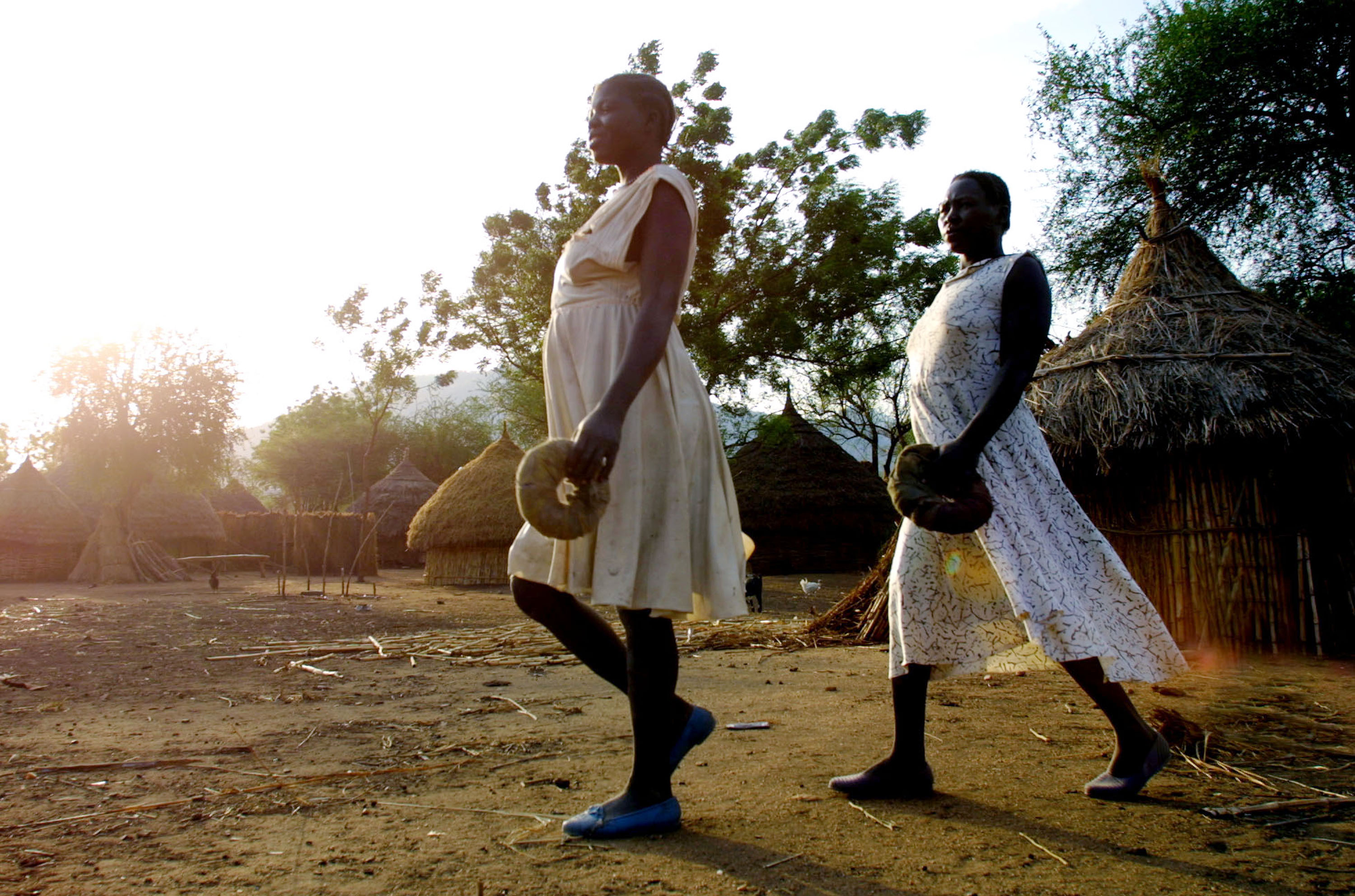Why Africa is the next China
If the most valuable economic resource is people, then Africa may have it made


A free daily email with the biggest news stories of the day – and the best features from TheWeek.com
You are now subscribed
Your newsletter sign-up was successful
The conventional wisdom about China is that it is an emerging superpower, and that it will be a dominant geopolitical and economic force in the 21st century.
Meanwhile, the conventional wisdom about Africa is that it remains a basket case, mired in poor governance, corruption, tyranny, poor infrastructure, and poor human capital.
I would like to suggest that this is exactly backward.
The Week
Escape your echo chamber. Get the facts behind the news, plus analysis from multiple perspectives.

Sign up for The Week's Free Newsletters
From our morning news briefing to a weekly Good News Newsletter, get the best of The Week delivered directly to your inbox.
From our morning news briefing to a weekly Good News Newsletter, get the best of The Week delivered directly to your inbox.
Let's take China first. For all its (dubious) growth numbers, it remains a poor country with enormous challenges. These include, but are not limited to, environmental degradation and the great disparities between the poor, rural areas and the rich, urban, coastal areas. Fundamentally, China is not prepared for the 21st century for two major reasons. The first is political: Despite Western punditry's image of a class of genius technocratic authoritarians who can lead the country's development, the reality of China's regime is that its leaders are enormously corrupt. Many are barely hanging on for life, and there is the very real fear that social tensions in the country could degenerate into open conflict at any moment.
The second is demographic: China is already an aging country, and aging countries do not win the future. And the demographic problem is not only one of age, but also one of sex. Widespread gendercide has created a dramatic gender imbalance. Tens of millions of angry young men who cannot find partners is not a recipe for social harmony and general cultural flourishing.
Now, what about Africa?
Oh, sure, if you want to prove that the clichés about Africa are true, there are countless examples you can name. Zimbabwe is still a basket case. South Sudan is an almost-failed state mired in an atrocious civil war, and Somalia is a totally failed state mired in an atrocious civil war (with the exception of Somaliland). The east of the Democratic Republic of Congo is still a lawless area where governments and various militant groups fight for natural resources. The Western intervention in Libya has disrupted the Sahel region, putting arms in the hands of Islamist groups all over a giant area, destabilizing Mali, Niger, and Chad.
A free daily email with the biggest news stories of the day – and the best features from TheWeek.com
But, on the whole, Africa is clearly getting better, particularly if you think in the long term. Slowly, haltingly, but surely, the number of tyrannical regimes is decreasing, and the number of democracies is increasing.
Corruption, while still endemic, has its days numbered. With growing democratization, governance is improving — again, slowly, haltingly, but surely. Thanks to widespread access to mobile phones and therefore to the internet, the grossest forms of corruption are becoming harder to get away with and transparency is increasing.
The hope is that with improving governance, Africa will enter a virtuous cycle in which more investment begets better governance, which in turn begets even more investment. Less and less, natural resources will be plundered for the sake of an elite. More and more, the dividends will reach the people. More and more, there will be roads and ports and electricity and phones. Malaria, which bleeds so many regions, is being beaten back.
But more importantly, the demographics are in Africa's favor. Many African states are gerontocracies, while Africa is the world's youngest continent. Africa's youngest generation is perfectly aware of corruption and its cost, and its tolerance for it is markedly low. Meanwhile, the old generation and the old way of doing business will one day pass away.
The entire planet is aging. Everywhere, birth rates have shrunk. Everywhere, that is, except sub-Saharan Africa. The countries that look to the future with confidence are the young countries. In 50 years' time, Africa will find itself with hundreds of millions of confident young people. They will be increasingly educated; most of them will speak either English or French or both; and they will be raring to seize the day.
Africa is full of ore and gold and diamonds and oil. But if the ultimate resource is people — and it is — then Africa is poised to be a giant in the 21st century.
Pascal-Emmanuel Gobry is a writer and fellow at the Ethics and Public Policy Center. His writing has appeared at Forbes, The Atlantic, First Things, Commentary Magazine, The Daily Beast, The Federalist, Quartz, and other places. He lives in Paris with his beloved wife and daughter.
-
 6 of the world’s most accessible destinations
6 of the world’s most accessible destinationsThe Week Recommends Experience all of Berlin, Singapore and Sydney
-
 How the FCC’s ‘equal time’ rule works
How the FCC’s ‘equal time’ rule worksIn the Spotlight The law is at the heart of the Colbert-CBS conflict
-
 What is the endgame in the DHS shutdown?
What is the endgame in the DHS shutdown?Today’s Big Question Democrats want to rein in ICE’s immigration crackdown
